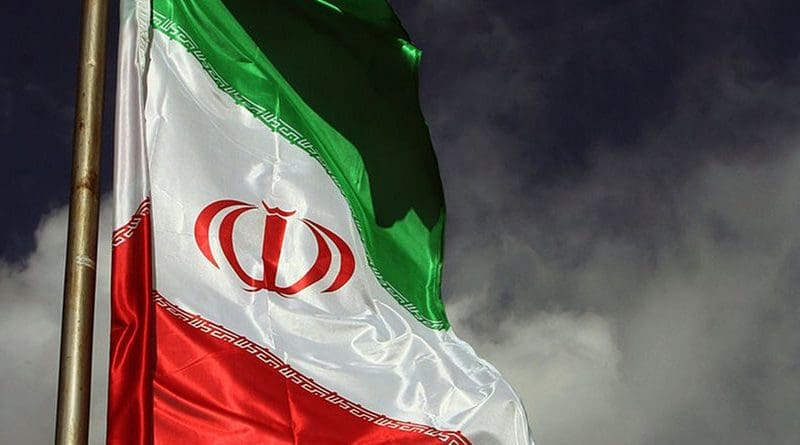EU Should Make Up Its Mind About Iran – OpEd
By Reza Shafiee
The past few months have been rough in EU-Iran relationship. After the US President’s departure from the nuclear deal with Iran, EU has tried to salvage the deal on its own. But outlawed Iranian politicians have left very little room for the likes of enthusiastic EU’s foreign policy chief, Federica Mogherini to maneuver in favor of the 2015 nuclear deal. Iran hits a raw nerve each time it stunts even its most optimistic backers with an announcement for testing a new ballistic missile.
Only last week Iranian regime tested a new ballistic missile and told the world it was just a failed attempt to launch a new satellite in orbit. It is of course in direct violation of the Iranian regime’s obligation to adhere to UN Resolution 2231. But that is not the only issue the EU bloc has with Iran. Since 2015, starting with the Netherlands, Iran has been involved in a series of terrorist activities on European soil. Actions that the EU cannot afford to ignore. The bloc hit Iran with the first round of sanctions since 2015 Iran deal a few days ago. Although they are relatively mild they certainly send a strong message to Tehran that at the time the EU is trying to save the nuclear deal in the face of strong temptation from the US to leave Iran and instead impose crushing sanctions it expects the mullahs’ regime to behave.
What happened on EU soil?
Supreme Leader Ali Khamenei and his cronies in the regime planned revenge for their main opposition in response to what had happened in late 2017 and throughout 2018 in Iran. Widespread protests in the country were not something that the Iranian regime could take lightly. Khamenei has not missed a single opportunity to remind its base support in Iran, paramilitary Basij Force and Revolutionary Guards, of the existential threat the People’s Mojahedin Organization of Iran (PMOI/MEK), poses to the regime.
Iran’s Ministry of Intelligence and Security (MOIS) with its partner in crime, the Intelligence Unit of the Revolutionary Guards, and their sister, the Quds Force, are accomplices in cynical plans against the regime’s opposition. A section of the MOIS is the target of the January 8 sanctions imposed by the EU bloc.
It all began by a failed MOIS plan to hit the Persian New Year Celebration of MEK in their new residence in Albania in March.
Tehran has changed its pattern of dealing with its dissidents abroad and has removed the “moderation” mask altogether.
In the 80s and early 90s, the nascent theocratic regime — not caring about the consequences of its actions — hunted down opposition figures in European capitals such as Paris, Berlin, and Rome. Now it seems that the ruling regime is revisiting the old terror tactics in Western cities again.
The second stop in the renewed terror campaign — this time using Iranian trained spies turned diplomats instead of using proxies like Lebanese Hezbollah to do the dirty work — was where a large gathering of Iran’s main opposition the National Council of Resistance (NCRI) took place in Paris on June 30.
Even as the rally unfolded, security forces in France, with the help of their German and Belgian partners, foiled a terrorist plot intending to target it. The timing of the plot was significant because Hassan Rouhani was scheduled to visit Austria the next day.
Assadollah Assadi, with MOIS nickname, Daniel, masterminded the plot while under diplomatic immunity from the Austrian government. He was stationed in Vienna. Assadi was caught red-handed when he was giving the explosives and detonator to a sleeper cell, an Iranian born Belgian couple to carry out the attack. Later Assadi was extradited to Belgium where he is imprisoned waiting for his trial on terror charges.
Assadi is one of two individuals named in the European Union’s first imposed sanctions against the Iranian regime since the nuclear accord was implemented three years ago.
According to diplomatic and security sources last fall, France expelled an Iranian diplomat in response to the failed plot. France’s foreign ministry said on October 2, there was no doubt the Iranian intelligence ministry had been behind the plot against the June 30 rally in Paris.
It subsequently froze assets belonging to Tehran’s intelligence services and two Iranian nationals.
In July 2018, Dutch authorities said they had expelled two Iranian diplomats, who foreign officials say were linked to the assassinations of two Iranian dissidents. US officials believed Iran’s Ministry of Intelligence and Security was involved.
A Strong message from EU
A strong message from EU was delivered on January 8th when French, British, German, Danish, Dutch, and Belgian diplomats arrived in the Iranian regime’s foreign ministry unexpected. The four EU diplomats were there to make sure Iran receives the message that the bloc will no longer tolerate Iranian regime’s missile tests and assassination plots on its soil.
“There was a lot of drama, they didn’t like it, but we felt we had to convey our serious concerns,” one of the diplomats said. “It shows the relationship is becoming more tense,” a second diplomat said.
The next day the EU imposed its first sanctions on Tehran since the 2015 nuclear deal with Iran.
On issues, missile proliferation and terrorism-the clerical regime’s officials with no exception- Khamenei, Hassan Rouhani and Revolutionary Guards close ranks.
With a strong and growing grass root opposition to the Iranian regime at home, it is only wise for the EU officials to cut their losses and leave behind a failed policy of appeasing mullahs. It has only harmed the Iranian people and Europe alike.
This article was also published at https://medium.com/intpolicydigest/eu-at-a-turning-point-with-iran-47db5e937e65

